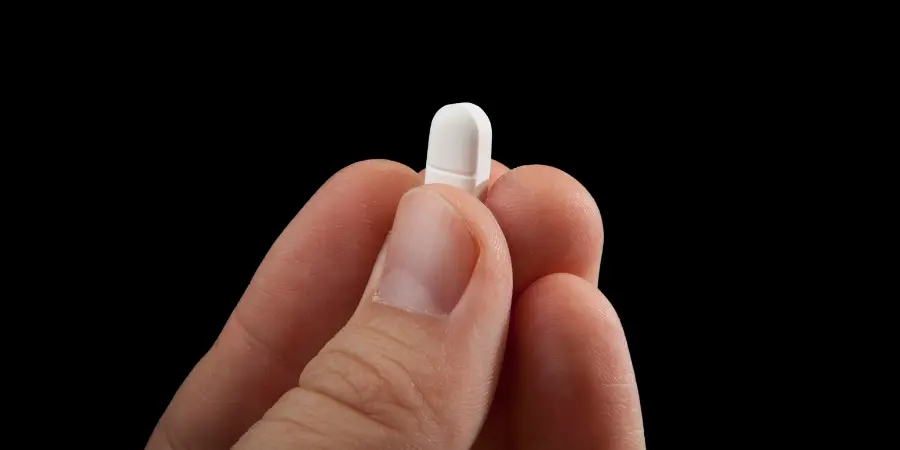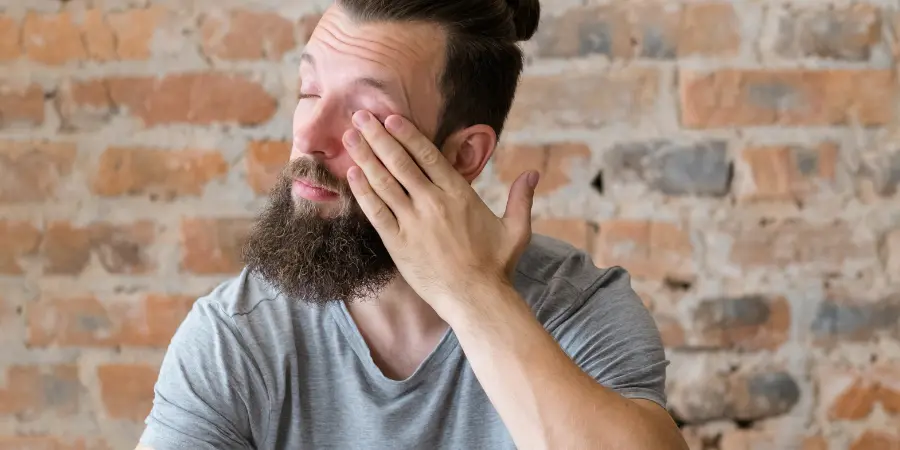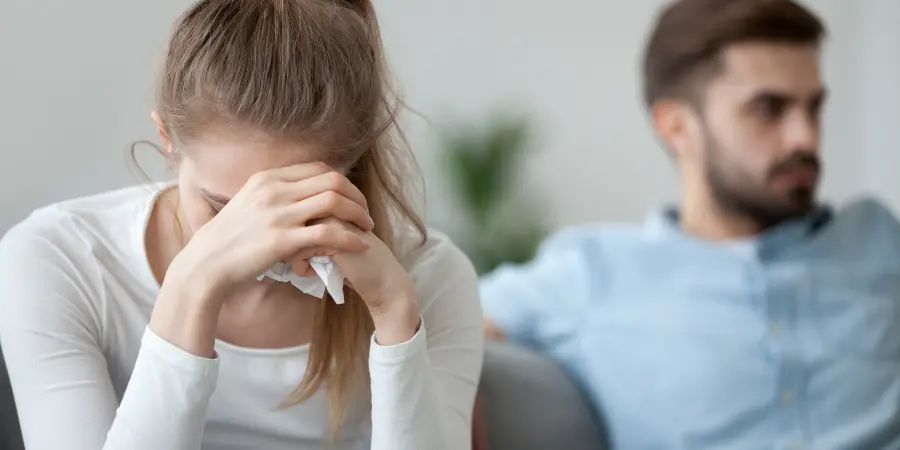
Written by:

Medically Reviewed by:
Last Updated:
February 24th, 2025
Vicodin Addiction | Symptoms, Effects and Treatment
Vicodin (a combination of the pain reliever hydrocodone and the anti-inflammatory drug acetaminophen) is a powerful prescription medication used to treat moderate to severe pain. While it can be a highly effective pain reliever, Vicodin is also a highly addictive substance. In fact, Vicodin addiction is one of the most common prescription drug addictions in the UK and worldwide. Vicodin addiction can develop in anyone who takes the drug, even if they’re taking it as prescribed by a doctor.
At Primrose Lodge, we understand how cunning and deceptive Vicodin can be and how it can take hold of someone’s life and ruin it. We are committed to helping people overcome Vicodin addiction and start living healthy, happy lives again.

What is Vicodin addiction?
Vicodin addiction is a serious, life-threatening condition that requires professional treatment and care. Vicodin addiction is characterised by strong, frequent cravings for the drug and an inability to control or limit your use of it. People who are addicted to Vicodin may take the drug more often or in larger doses than prescribed, or they may take it without a prescription.
Vicodin addiction is a complex condition that affects the brain and body in many ways including the way you think, feel and behave. It can be incredibly difficult and potentially even dangerous to overcome an addiction to Vicodin which is why it’s so important to understand the roots of your addiction and undergo a comprehensive treatment programme. This should include Vicodin detox, Vicodin rehab and aftercare services.
How is Vicodin used and abused?
Vicodin is most commonly taken orally in pill form, but it can also be injected. The effects of Vicodin usually last for four to six hours and include pain relief, relaxation and a sense of well-being. Vicodin is often abused for these effects in higher doses than prescribed, without a prescription, or in combination with other substances.
People who abuse Vicodin may crush the pills and snort them, or mix them with water and inject them. Abusing Vicodin in this way can increase the potency of Vicodin but also runs the risk of overdose and other serious health problems. Vicodin abuse is not only dangerous, but it is also illegal as Vicodin is a controlled substance in the UK.
How does Vicodin addiction develop?
Most people who abuse Vicodin don’t expect to become addicted but anyone who takes Vicodin is at risk of developing an addiction. Vicodin works by binding to opioid receptors in the brain and spinal cord which reduces pain signals and produces a sense of euphoria. These effects can be very addictive, and with regular use, tolerance and dependence can develop quickly.
Tolerance to Vicodin means that you need to take larger doses of the drug to achieve the same effects. Dependence on Vicodin occurs when your body becomes so used to the presence of the drug that it cannot function normally without it.
Withdrawal symptoms such as anxiety, nausea and headaches can then occur if you try to stop taking Vicodin suddenly. Once you have developed a physical dependence on Vicodin, it can be very difficult to stop taking the drug without professional help.
Why is Vicodin addictive?
Ultimately, the underlying causes of Vicodin addiction are the same as any other addiction: a combination of genetic, psychological and environmental factors.
People who are prescribed Vicodin for legitimate reasons may become addicted because of the way Vicodin affects them. They may start out taking Vicodin as prescribed but quickly develop a tolerance to the drug and may begin taking larger doses. As their addiction develops, they may start taking Vicodin more often or in different ways than prescribed, such as crushing the pills and snorting them. As with any other drug, the more Vicodin is used, the greater the risk of developing an addiction.
Environmental factors such as peer pressure and stress can also contribute to Vicodin abuse and addiction, particularly in young people who may be more vulnerable to these influences.
Vicodin is often used to self-medicate for pain or mental health conditions such as anxiety and depression. This can lead to a spiral of addiction where people actually end up taking more Vicodin to cope with the negative effects of their Vicodin abuse.
The impact of Vicodin addiction on health
Vicodin addiction can have short-term and long-term effects on your physical and mental health. Short-term symptoms of Vicodin addiction include:
- Drowsiness
- Nausea and vomiting
- Constipation
- Dizziness
- Confusion
- Slowed breathing
Long-term effects of Vicodin addiction include:
- Liver damage or failure
- Kidney damage or failure
- Respiratory problems
- Brain damage
- Coma
- Death
Vicodin overdose is also a serious risk of Vicodin abuse and addiction. The risk of Vicodin overdose is greatly increased by taking Vicodin in combination with other substances, such as alcohol or other drugs. Symptoms of a Vicodin overdose include:
- Slow or shallow breathing
- Extreme drowsiness
- Muscle weakness
- Cold, clammy skin
- Loss of consciousness
- Death
If you or someone you know is experiencing these symptoms, it is important to call emergency services immediately.
The impact of Vicodin addiction on family, career and life
Vicodin addiction can have a devastating impact on all aspects of your life. The most obvious way Vicodin abuse will affect you is by interfering with your work or studies. It is difficult to maintain focus and concentration when you are preoccupied with using Vicodin and dealing with the symptoms of withdrawal. As your Vicodin addiction worsens, you may start to miss work or school more often as you prioritise using Vicodin over other responsibilities.
Your relationships will also suffer as a result of your Vicodin addiction. The time and money you spend on Vicodin will also leave less for your family and friends. You may become more withdrawn and isolate yourself from the people who care about you as your addiction takes over your life. Vicodin addiction can also lead to financial problems as you spend more and more money on the drug.
Recognising the signs of Vicodin addiction and admitting to yourself and others that you need help can be an incredibly difficult but crucial step. Here are some important questions to ask yourself which may indicate you are addicted to Vicodin:
- Do I take Vicodin more often or in larger doses than prescribed or long after my prescription has run out?
- Do I take Vicodin in different ways than prescribed, such as crushing the pills and snorting them?
- Do I feel like I need to take Vicodin every day just to feel like I can function?
- Do I feel like Vicodin is the only thing that can help me cope with my problems?
- Have I lost interest in activities I used to enjoy because of my Vicodin use?
- Have my relationships suffered as a result of my Vicodin use?
- Do I continue to use Vicodin even though it is causing problems in my life?
If you answered yes to any of these questions, it is important to seek help as soon as possible. Vicodin abuse is a serious problem that will only get worse if left untreated. Get in touch with Primrose Lodge today and we can get you started on your road to recovery.
The lies and deceit of Vicodin addiction
One reason that recognising you need help is so difficult is that Vicodin addiction is a master at deception. It will try to convince you that you don’t have a problem and that anyone who is raising concern about your Vicodin use is just overreacting. Here are some common lies your Vicodin addiction will tell you:
You need to take Vicodin for your pain/injury/medical condition…
This may have been the case when you were first prescribed Vicodin, but as your addiction develops you will continue to take Vicodin even when there is no legitimate reason to do so. You need to be honest with yourself and recognise that the only reason you are still taking Vicodin is that you are unable to stop. Only then will you seek the help you need to overcome your Vicodin addiction.
Vicodin isn’t really that harmful; it’s not like other drugs…
Vicodin is a powerful opioid painkiller that is highly addictive. It is just as harmful as other drugs and can lead to serious health problems, including overdose and death. Don’t fool yourself into believing that just because Vicodin is legal and prescribed by doctors that it isn’t dangerous.
You can stop using Vicodin anytime you want, you just don’t want to right now…
Forcing people into denial is one of Vicodin addiction’s favourite moves. It will try to convince you that you can stop anytime, even though you know deep down that this isn’t true. The fact is that if you truly give up Vicodin, you would already have done so. Why else would you continue to take it despite the negative effects it is having on your life?
Are you looking to overcome your addiction and start a new life free of Vicodin? Get in touch with Primrose Lodge today and we can help you take the first steps on the road to recovery.




